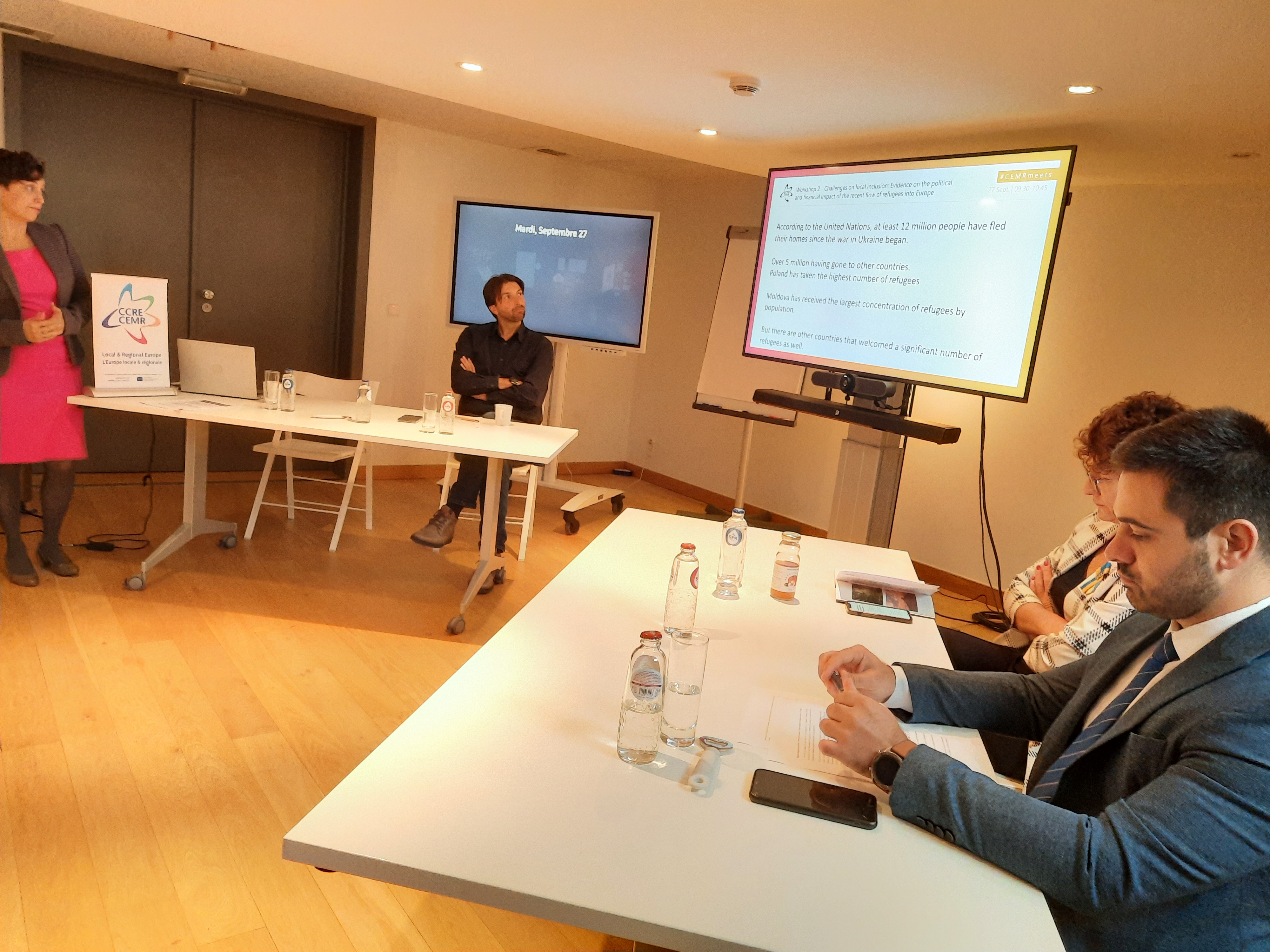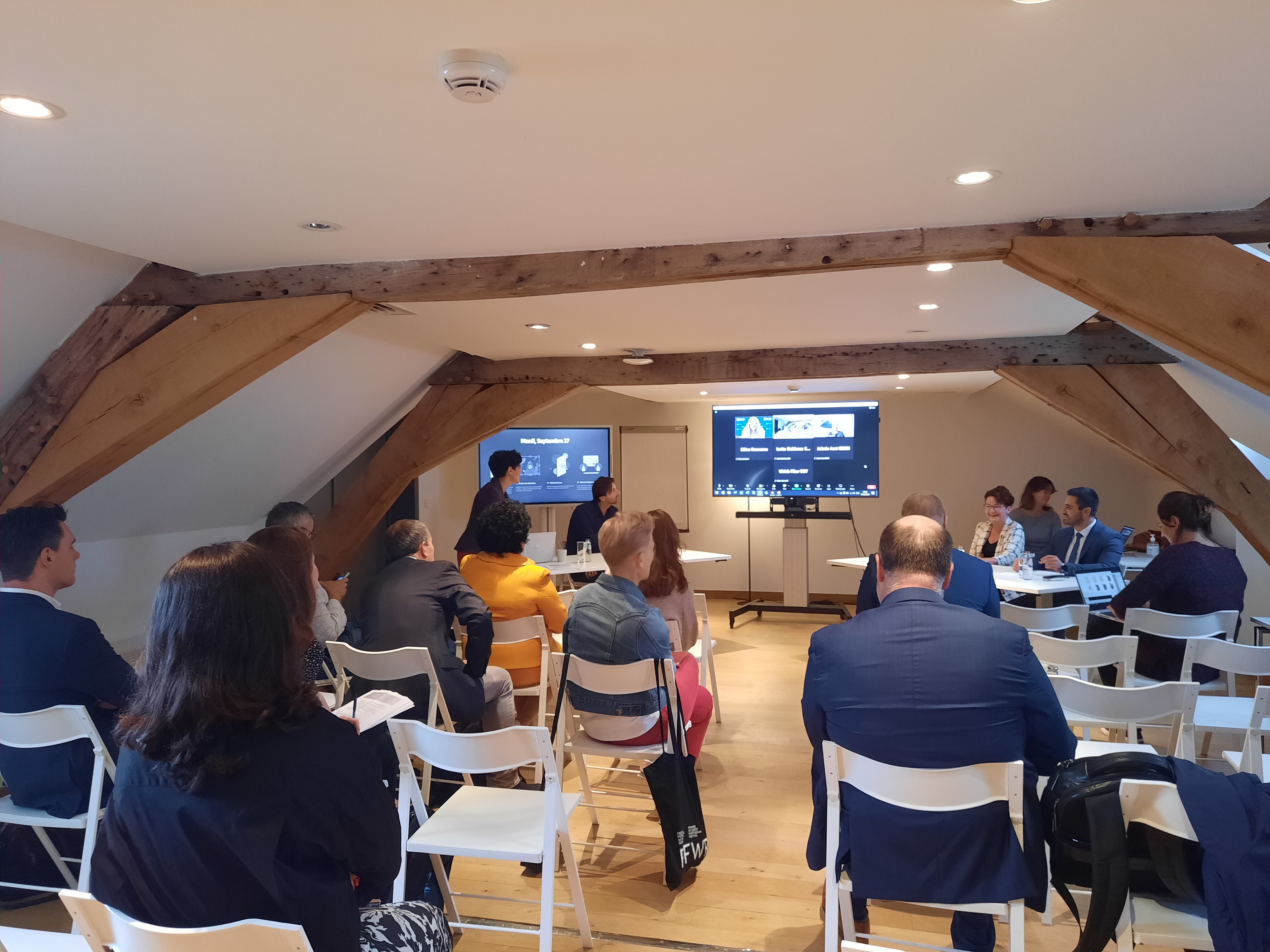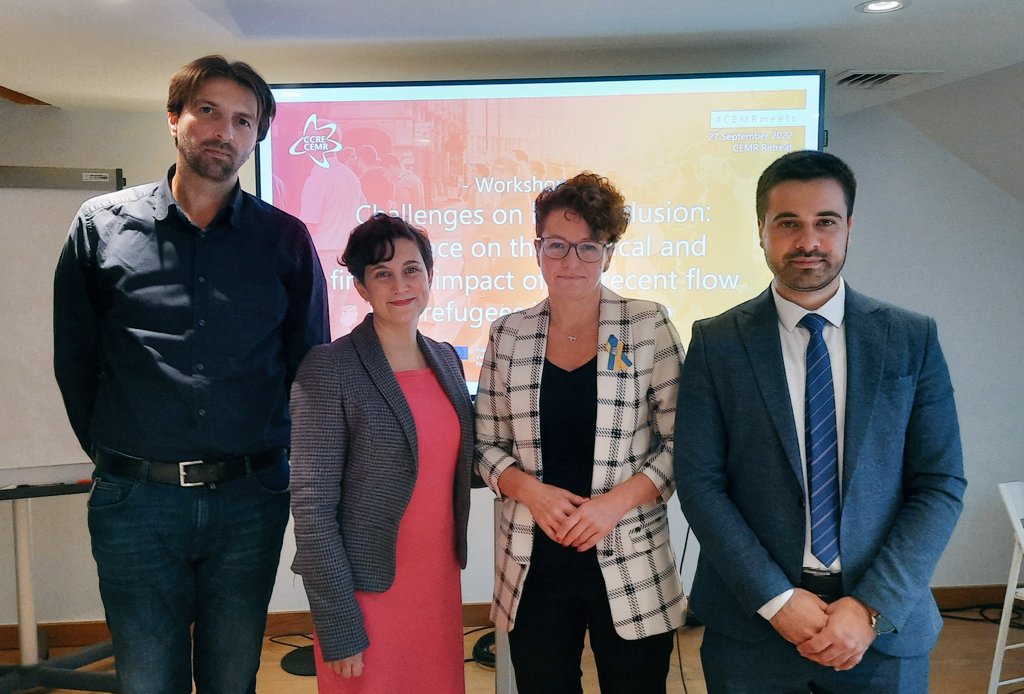Challenges to local inclusion
Same as every year, the CEMR cohort met in September to discuss the most pressing topics for the local and regional governments and set the way forward.


In the framework of different sessions, we organised a workshop on September 27
Challenges on local inclusion: evidence on the political and financial impact of the recent flow of refugees into Europe
This session shed light on how the Ukrainian refugee crisis affected cities and regions at the front line and how local and regional governments are managing the challenges on the ground.
Cities are preparing for the refugees' mid- to long-term stay, and they prioritise helping them find safe, affordable and suitable housing, access to basic services, health, education, and the job market. However, the resources and strengths of European cities are fading. Despite the EU support, local governments are often still using their own financial resources to manage the reception of newcomers. And this is not the only impact cities experience, stressed Maria Grazia Montella in her introduction to the workshop, by presenting lessons learned from the IncluCities project, Taskforce on Migration and Inclusion partnership. See the presentation here.
- In the introduction overview from Ave Lauren, Migration Policy Analyst Directorate for Employment, Labour and Social Affairs at OECD, we have heard that the OECD countries responded swiftly to the refugee crisis, granting immigration concessions and extending different types of support and assistance to the new arrivals. CEE countries are hosting disproportionately more arrivals than other countries. The estimated costs for the European OECD countries will be about EUR 26.6 billion in 2022. From emergency management, they are transitioning to the mid-and long-term inclusion of migrants by integration in the education system and labour market integration. Asa consequence, the labour force in Europe is expected to increase by about 0.5% by the end of 2022. Transitioning to long-term housing remains a challenge. See her presentation here.
Key takeaway: Successful (labour market) integration can also support the future reconstruction of Ukraine by upgrading skills and know-how and supporting reintegration and remittances.
*The upcoming International Migration Outlook (published on Oct 10) will also have a special chapter on Ukraine with further information on the financial costs of the crisis.
- Magdalena Czarzynska-Jachim, Deputy Mayor of Sopot and Chair of the APC’s Human Rights and Equal Treatment Committee, Poland, explained how the fact that Poland has taken the highest number of refugees influenced the number of inhabitants in cities. In some cases, the number increased even up to 50%. A huge problem is the schools. There are over half a million Ukrainian children, and only one-third are integrated into the educational system. In Warsaw, they would need 30 new schools to include them all in the Polish educational system. Cities suggested they should train Ukrainian women to teach in schools so children could continue their education (and women had a job). The important insight is also that cities that oppose the central government receive less and less money from the state to manage the programmes for refugees. This causes problems with the local population.
- Silviu Ungureanu-Iubitu, Brussels Representative of the Romanian Municipalities Association, visited the border cities hosting more refugees from Ukraine. The financial impact on these municipalities is big; however, there are other things that worry. People are also afraid that Romania isn’t safe from Russian attacks. There is a lack of trust in EU, the government and the media. This is dangerous as people lean on other sources of information that can be misleading. He also reminded us that winter is coming, and with higher energy prices, the situation will worsen for refugees as well as for the local population.
- Guram Okropiridze, a Member of the Tbilisi City Assembly, Georgia, shed light on the management of the refugee crisis in non-EU countries. They face similar issues in this but have fewer means to solve them. They offer free services for refugees, like kindergarten, enabling access to emergency and health services, and supporting housing and labour market integration. The help of international organisations like the UN is very valuable.
